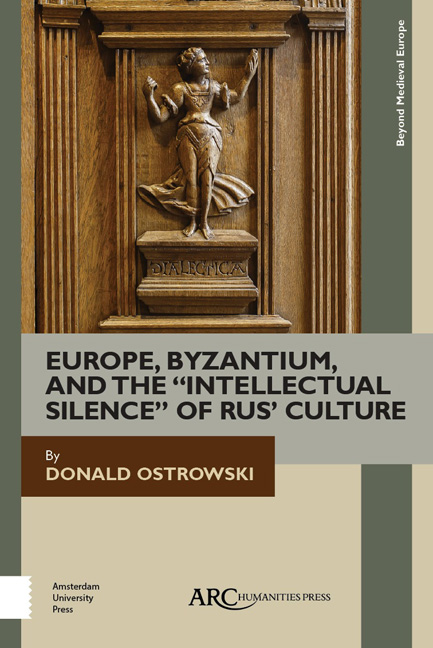Summary
One of the least studied and most misunderstood areas of European history is the comparative impact the Western Church and the Eastern Church had on their respective cultures. This is especially the case with regard to Rus’ culture. To a great extent, relatively naive ideas about the development of high culture (or lack thereof) in pre-modern Rus’ predominate, even in scholarly thinking. It is more fashionable to condemn the Church than to try to understand its outlook. Among such ideas I would place the view that the Orthodox Church stifled the development of East Slavic intellectual thought.
This view has a long tradition among both scholars and historiosophists, and one more recent advocate has been the historian Francis Thomson. He published a number of exhaustively researched philological studies, but at times he engaged in speculation about the nature of Rus’ culture that struck some scholars as questionable. Thomson made the claim that the Orthodox Church prevented Rus’ culture from fulfilling its “natural” development: “It was not the Mongols who were responsible for Russia's intellectual isolation … it was the Church.” In another article he wrote that it was “the Russian Church, mistakenly considering itself to be in possession of all the treasures of Orthodoxy,” that “remained an obstacle to intellectual progress until its hold was broken by Peter the Great.” Such assessments of the Orthodox Church coincide with the views of Russian liberals of the late nineteenth and early twentieth centuries. As early as 1978, Thomson raised the question: “Where is the Russian Peter Abelard? Where is the intellectual ferment similar to that caused by Berengar's teaching on the eucharist in the eleventh century or Gilbert de la Porrée's on the Trinity in the 12th?” Ten years later, he answered his own question by giving up the search: “It is pointless to look for a Russian Abelard.”
A variant of the question “Where is the Russian Peter Abelard?” was placed to me directly by Thomson in the form: “They didn't have a Plato, did they?” Maybe not, but Eastern Christianity has as good a claim to having inherited Platonic thought as Western Christianity does.
- Type
- Chapter
- Information
- Publisher: Amsterdam University PressPrint publication year: 2018



